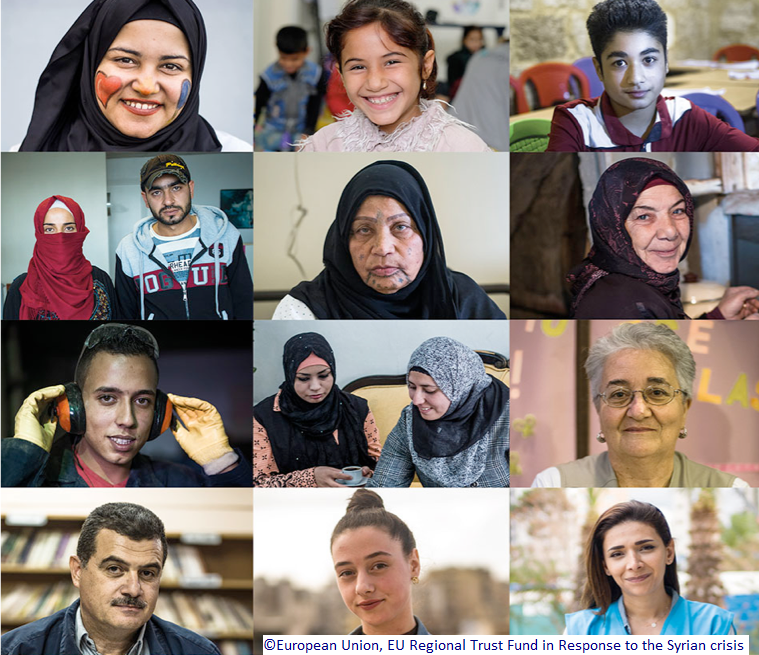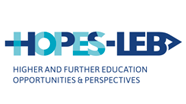The story of HOPES
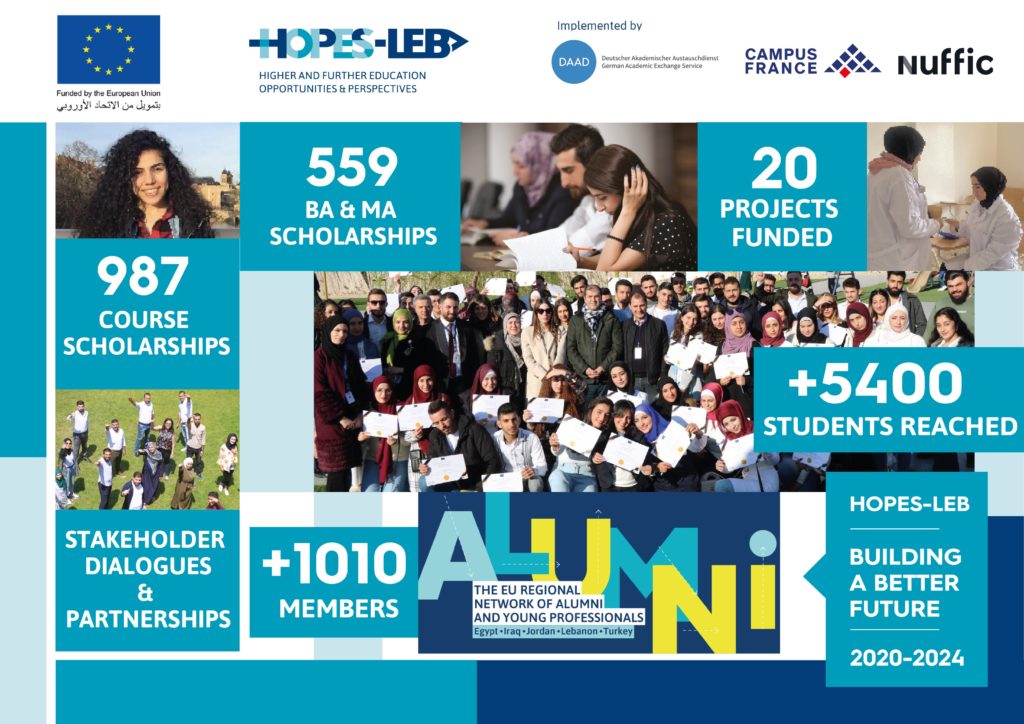
HOPES-LEB (Higher and Further Education Opportunities and Perspectives for Syrians and vulnerable youth in Lebanon) is an €8.4 million project funded by the European Union and implemented by the German Academic Exchange Service (DAAD),Campus France and Nuffic.
Due to the conflict in Syria, more than seven million Syrians have been displaced internally and around five million have fled the country, finding refuge in neighbouring countries. With approximately one million registered individuals, Lebanon is considered the country in the world with the highest per capita ratio of refugees from Syria. As a result of the protracted crisis and local political and economic difficulties, the higher education system in Lebanon has been heavily affected and a situation has arisen where only 6% of the Syrian youth in Lebanon between the ages of 18 and 30 are currently enrolled at Lebanese higher education institutions.
Within this context, the HOPES-LEB project aims at improving livelihood prospects through higher education opportunities for vulnerable Lebanese youth and refugees in Lebanon thus increasing their chances for a better future.
It also seeks to provide better access to quality further and higher education opportunities and support to higher education and local institutions in Lebanon.
Discover the HOPES-LEB project through the following short clip featuring testimonies from our students and alumni.
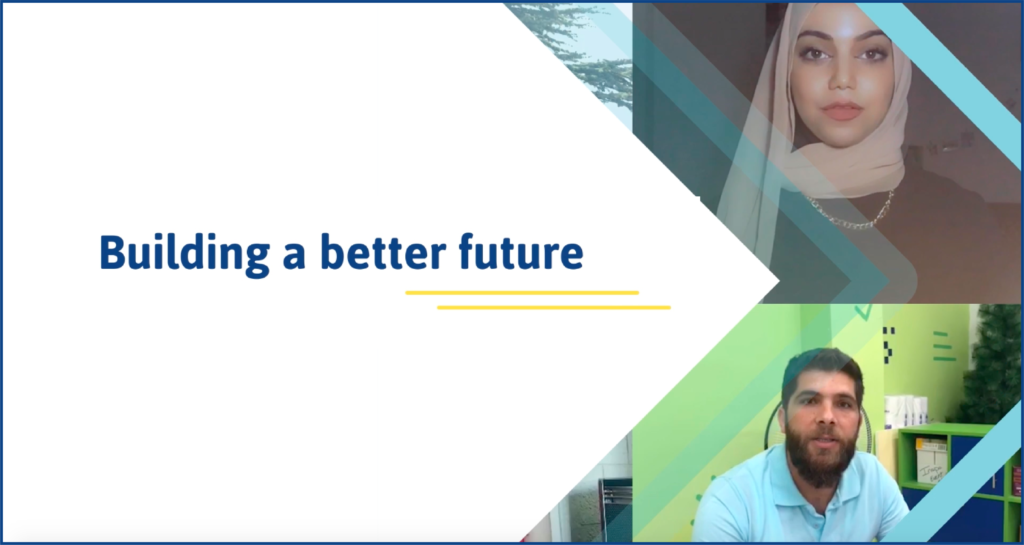
HOPES-LEB INCLUDED THE FOLLOWING ACTIVITIES:
HOPES-LEB followed a comprehensive approach covering the entire educational pathway for higher education, from preparation for university studies to access to the labour market.
→ THE SCHOLARSHIP FUND
HOPES-LEB provided a broad spectrum of scholarships for vulnerable Lebanese and young refugees in Lebanon. Students benefited from preparation courses for higher education, university studies such as Bachelor and Master’s and further postgraduate courses to increase their employability and entrepreneurial chances.
Overall, 559 full university scholarships were awarded to Lebanese and refugees in Lebanon to pursue their BA and MA studies at the Lebanese University (LU) and the Lebanese International University (LIU).
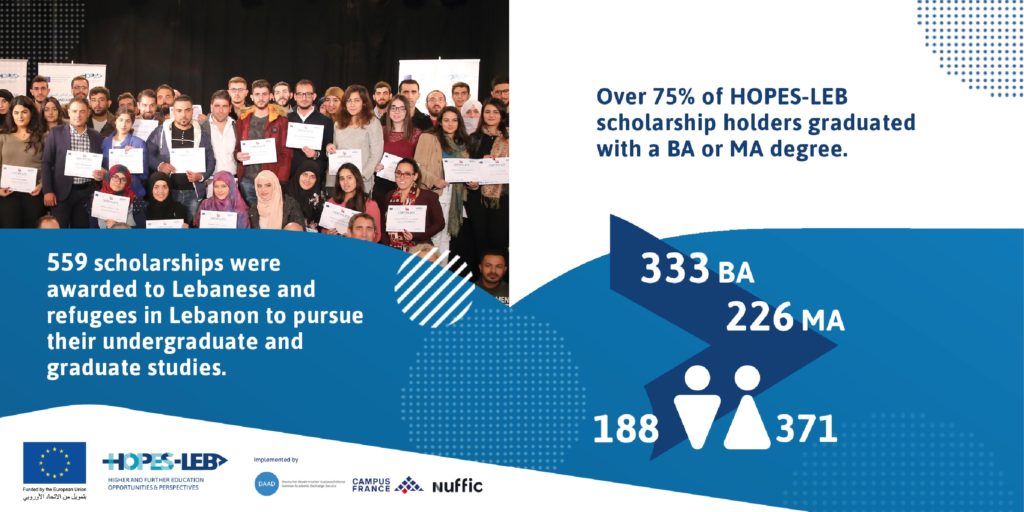
987 short courses scholarships were allocated in partnership with the Center for Civic Engagement and Community Service (CCECS) of the American University of Beirut (AUB), CIS College, the Kayrawan Institute (KI) and Atlas English.
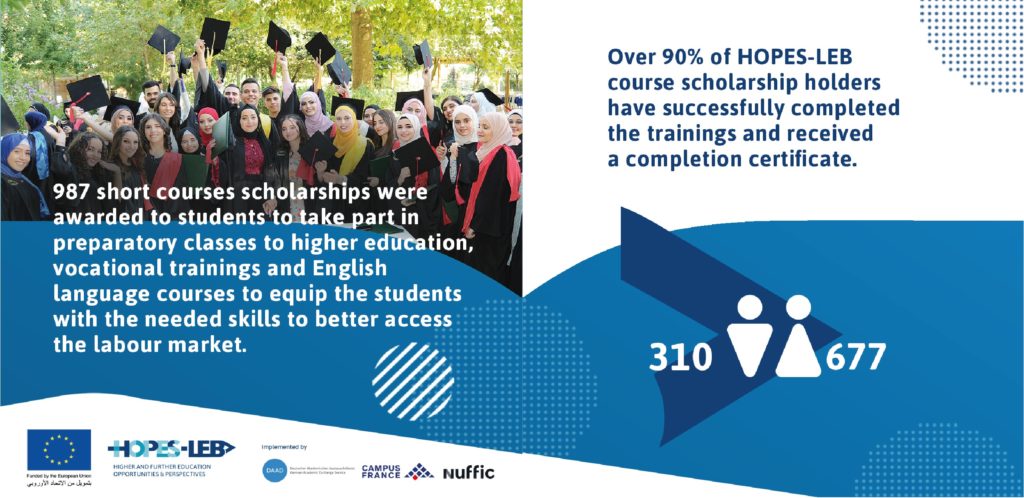
→ ACADEMIC COUNSELLING
The provision of information and advice through the counselling process helped students make decisions along the educational pathway enabling them to identify adequate offers that might help them to achieve their goals.
Counselling was offered to more than 11,600 seekers of advice on higher and further education opportunities by phone, emails, WhatsApp and the Facebook page. Regular dissemination of scholarship announcements and educational opportunities through the catalogue of study opportunities on the HOPES-LEB website.
→ FUNDING FOR TRAINING AND CAPACITY BUILDING
HOPES-LEB provided tailor-made support and funding for innovative short-term education projects implemented by local institutions. These projects aim to address the specific needs of students and to alleviate bottlenecks related to access to further and higher education, the completion of studies and labour market preparation.
A total of 18 short projects were funded through two calls for proposals launched in 2020 and 2021. In addition, HOPES-LEB funded two rounds of the GUIDE ME Project, a HOPES-LEB student initiative in collaboration with CIS College which focuses on providing BT3 students from CIS College with tutoring services related to official examinations by connecting them with tutors from HOPES-LEB alumni through an online learning platform.Projects have ended reaching more than 5,400 beneficiaries in total.
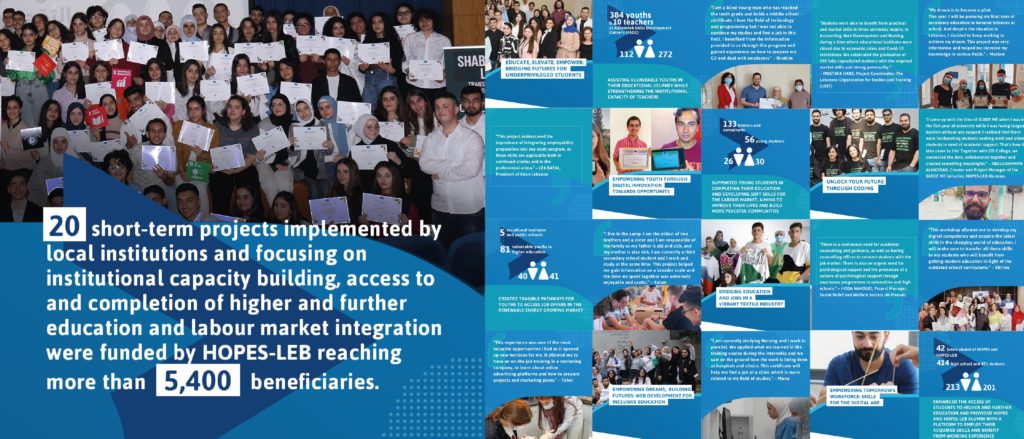
→ STAKEHOLDER DIALOGUE AND COORDINATION
Through coordination meetings and local events, HOPES-LEB contributed to the national stakeholder dialogue and the coordination of interventions in the higher and further education sector related to the emergency crisis in Lebanon.
A series of stakeholder dialogues entitled “Higher Education in times of collapse” in collaboration with the National Erasmus+ Office of Lebanon throughout 2022 brought together professionals and academics, representatives of institutions and organisations as well as students, to further discuss the impact of the crises in Lebanon on the higher education sector and on students and education providers.
The series resulted in the development of Recommendations for the Provision of Immediate Support for the Lebanese Higher Education System and follow-up round tables in 2023 and 2024 between relevant donor agencies and providers of support with national representatives of higher and further education institutions and organisations as well as a series of capacity building workshops on proposal writing and reporting.
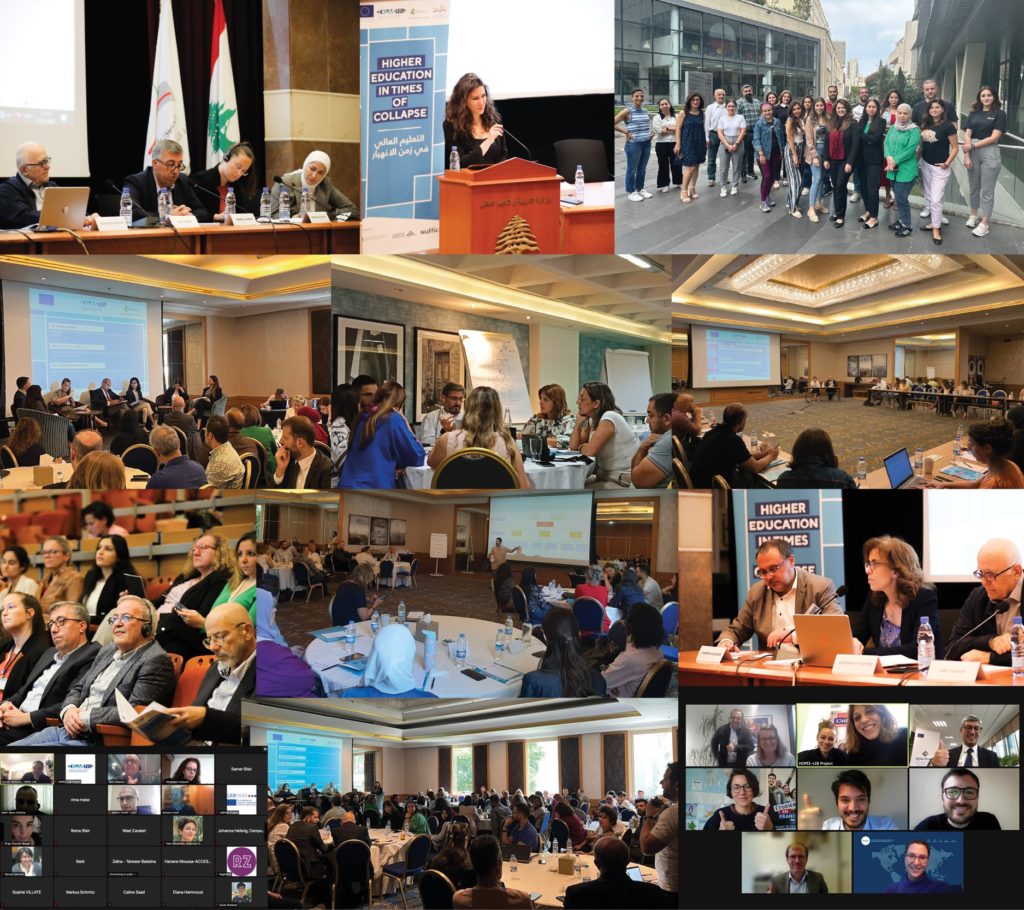
→ THE EU REGIONAL NETWORK OF ALUMNI & YOUNG PROFESSIONALS
The EU Regional Network of Alumni and Young Professionals is a unified regional alumni community of former and current EU-funded scholarship holders in Egypt, Iraq, Jordan, Lebanon and Turkey established to facilitate exchanges between the alumni and increase their further educational and labour market prospects at the national, regional and international levels.
The network was set up and and managed by the HOPES-LEB consortium in cooperation with the EDU-SYRIA scholarship programme led by the German Jordanian University in Amman and the DAFI programme implemented by UNHCR and with the active participation of alumni graduates of HOPES, EDU-SYRIA, DAFI and other EU funded higher education projects.
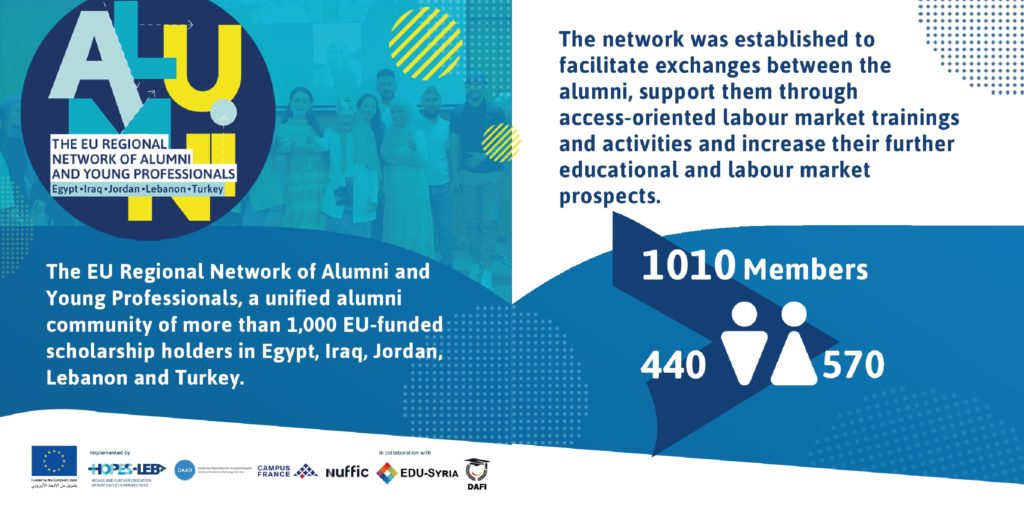
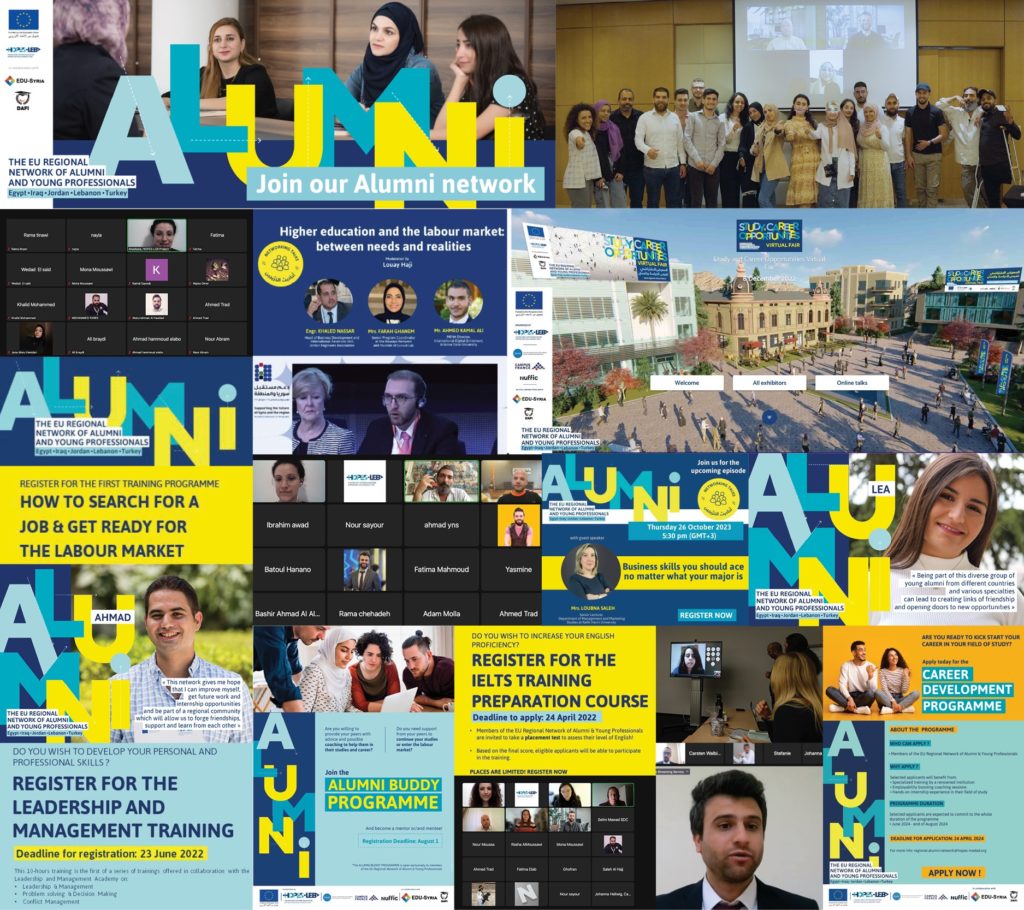
HOPES-LEB stories, testimonies and journey
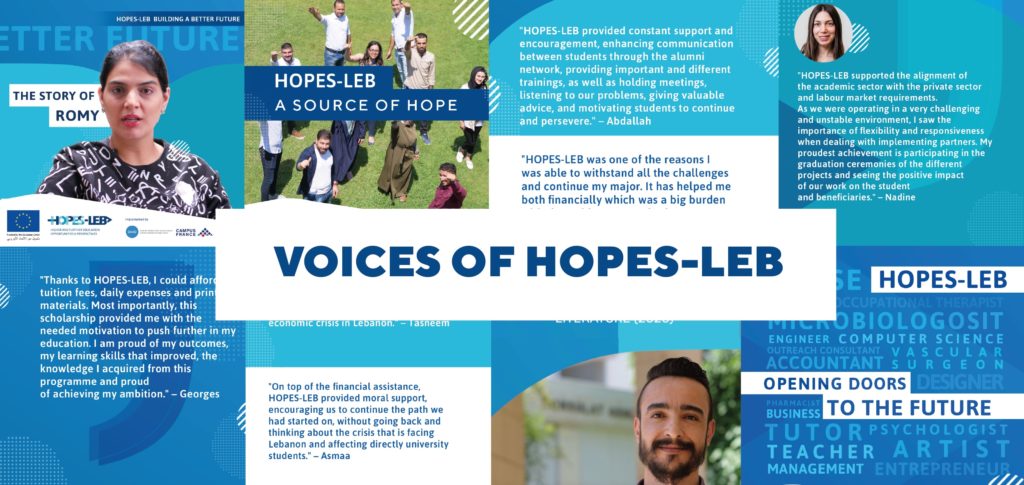
HOPES-LEB is a continuation of the HOPES Project
HOPES-LEB is a continuation of the HOPES (Higher and Further Education Opportunities and Perspectives for Syrians) project, funded by the European Union, through the EU’s Regional Trust Fund in Response to the Syrian Crisis, the ‘EU Madad Fund’, and implemented by the German Academic Exchange Service (DAAD), British Council, Campus France, and Nuffic.
It aims to provide better access to quality further and higher education opportunities for refugees of post-secondary-age from Syria as well as young people in the host communities affected by the high influx of refugees in Egypt, Iraq, Jordan, Lebanon and Turkey.
HOPES was a €12 million multifaceted project implemented from 2016 until 2020 and which provided full academic scholarships at bachelor’s and master’s levels, university based English-language and study skills courses, academic counselling, funding for innovative short-term education projects and national and regional stakeholder dialogues.
More Information about the EU Regional Trust Fund in response to the Syrian crisis, the EU Madad Fund:
The EUTF was established in 2014 to allow for a coordinated response to the Syrian crisis and to provide refugees and host communities in the countries neighbouring Syria with the needed support by mobilising 2.38 billion Euro for projects in the spheres of education, livelihood, health, protection and water management. The EUTF Syria – Madad officially ended in December 2021, with projects running until June 2025. However, the EU response to the Syrian crisis is set to continue through the transition to the “Neighbourhood, Development and International Cooperation Instrument” (NDICI).
